Pierre Varangot
Tracing the origins, legality and legacy of Pierre Varangot’s San Sebastián deck.
As the usual “Con Licencia” notice is not evident, and the maker has only initialled the deck P.V. rather than inscribe his full name, this pack may have been smuggled. Pierre Varangot came from Bayonne in France, and worked for Pamplona General Hospital between 1744 and 1753, during which period his contract forbade him from producing cards outside the institution’s jurisdiction. Therefore the production date of this deck must be either before or after these years; we are inclined to infer it predates 1744.
The two of swords mentions San Sebastián as the place of origin (a provenance it shares only with a deck by Juan Barbot, c.1765). The Varangot family's links to this town, which borders Bayonne, are well established, although it remains possible that San Sebastián was cited fraudulently to avoid legal complications. In any case, this is one of the few surviving examples of the connection between cardmakers in the southwest of France and the Spanish market, particularly Navarra, Aragón, and northern Spain, with the rare addition of a precise origin, which is uncommon among most documented decks of this type.
The Ace and 5 of coins tended to be based on Double Excellent Gold Coins of the Catholic Monarchs
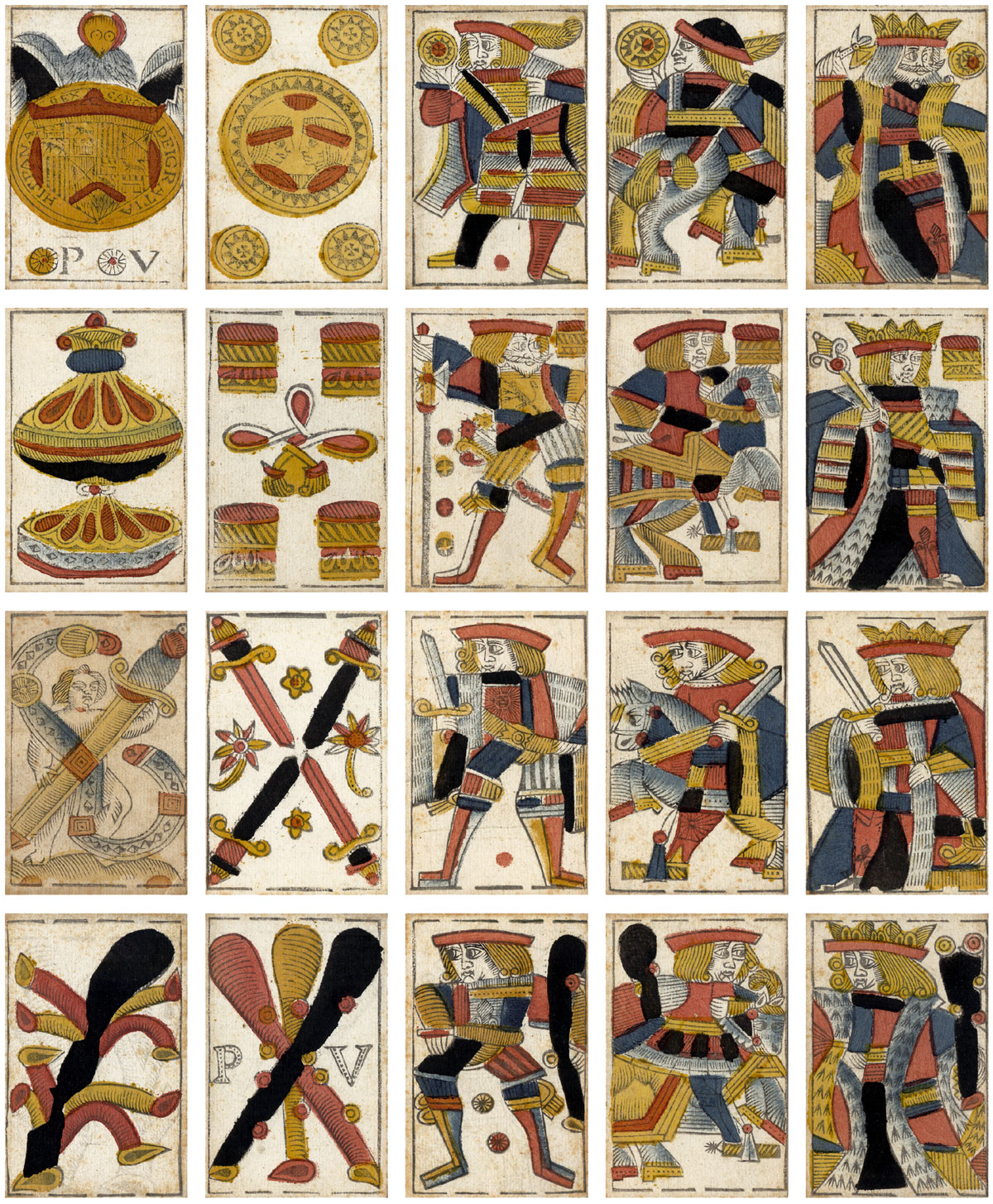
Above: Archaic Franco-Spanish pattern with maker’s initials P.V. estimated c.1740. 48 cards (complete). From the collection of Enrique García Martín.
References
Pérez González, Alberto : Pedro Varangot, indagaciones sobre un naipero itinerante, to appear in La Sota No.54, October 2025.
Museo Fourner de Naipes de Ávila : Baraja española por Pierre Varangot►
By Alberto Pérez González
Spain • Member since December 21, 2016 • Contact
I am a researcher and my primary interest lies in playing cards manufactured in Cádiz (not the 'Cádiz' type in general). I have authored several articles in the annual Asescoin magazine 'La Sota'. Among them are: “Madrid’s Playing Cards from the 17th to the 20th Century”; “New Contributions to the Study of Playing Cards in the Valencian Country”; “The Fouquets: 'Navarra pattern' in the Netherlands”; “Divided Playing Cards: Combining Ingenuity with Skill”; “Here Be Dragons: Speculations on the Evolution of the so-called 'Portuguese' Pattern”; “Playing Cards in Chile: News and Chronicles from the Viceroyalty Era”...
I have written and designed the book “Los Naipes de Cádiz” (296 pp). Additionally, I have contributed to the design, layout, and collaboration in Enrique García Martín’s book “Naipes, Arte y Fantasía” (444 pp).

Related Articles
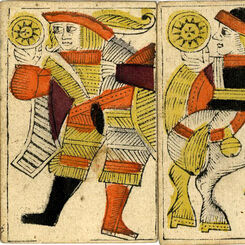
Archaic Spanish-suited pattern from Bayonne
Archaic Franco-Spanish pattern from Bayonne by a manufacturer with the initals M.V.
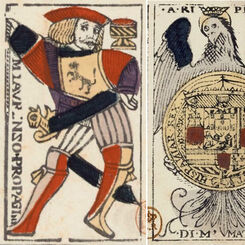
Laurenzo Propagine
Spanish-suited cards made in Italy by Laurenzo Propagine.

Archaic Spanish proof sheets
2 x uncoloured proof sheets of archaic Spanish-suited playing cards produced for “New Spain”, possib...
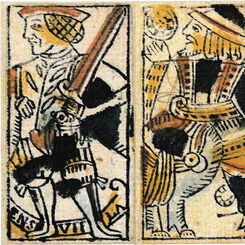
Sevilla 1647 reproduction
Facsimile of Spanish-suited pack produced in Sevilla, Spain, 1647.

Pere Pau Rotxotxo Puigdoura
Spanish national pattern by Pere Pau Rotxotxo Puigdoura (1766–1797).
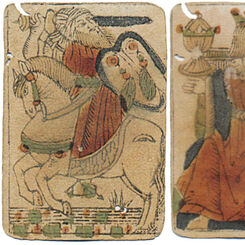
XV Century Spanish-suited playing cards
XV Century Spanish-suited playing cards with moorish influences
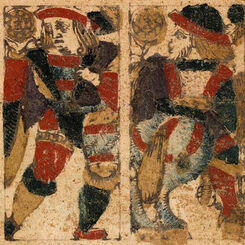
Toledo, 1584
Archaic Spanish-suited deck with 48 cards made in Toledo in 1584.
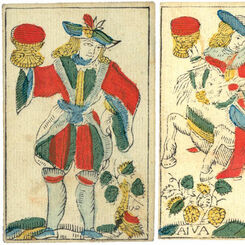
Baraja Carlos IV by Félix Solesio, 1800
Baraja Carlos IV, Félix Solesio en la Real Fábrica de Macharaviaya, 1800.
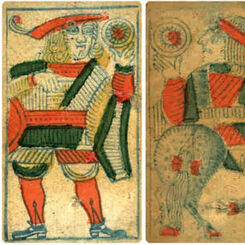
Pedro Varangot, 1786
Archaic Navarra pattern produced for the Pamplona General Hospital Monopoly by Pedro Varangot in 178...
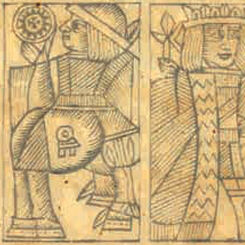
Navarra Pattern, 1682
Navarra pattern produced for the Pamplona General Hospital Monopoly in 1682.
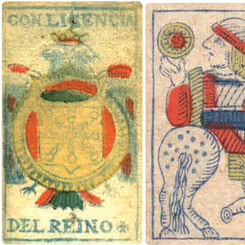
Navarra Pattern
Navarra Pattern produced for the Pamplona General Hospital Monopoly.
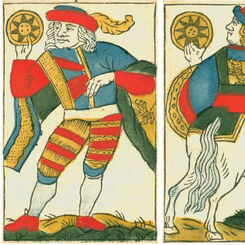
Anonymous Spanish Suited pack, c.1760
Anonymous archaic Spanish suited pack, c.1760.
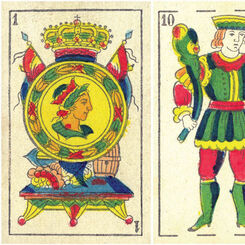
J. Muñoz, Getafe (Madrid) c.1870s
Catalan pattern by unusual manufacturer from Madrid, J. Muñoz, Getafe, c.1870s.
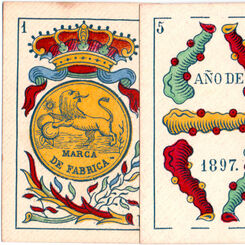
Naipes ‘El Leon’ 1897
Naipes ‘El Leon’ manufactured by Federico Hidalgo (Barcelona, 1897-1899).
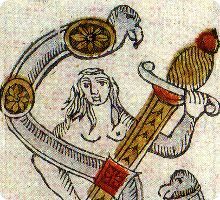
Joan Barbot
Joan Barbot, San Sebastian c.1765-1810.
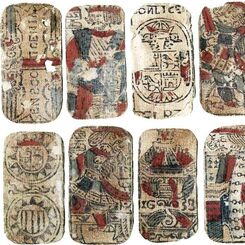
Tax on Spanish Playing Cards
Taxation on Spanish playing cards, the monopolies and smuggling.
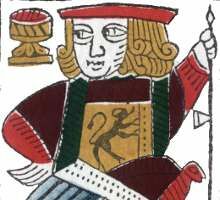
Navarra, XVII Century
Facsimile of 17th century Spanish-suited playing cards produced by Erregeak, Sormen S.A., Vitoria-Ga...
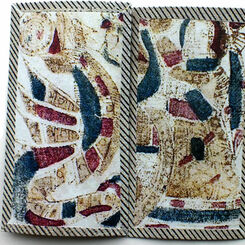
Francisco Flores
Playing cards in this style have been discovered in various parts of the world, suggesting that they...
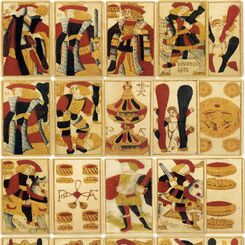
Phelippe Ayet, c.1574
Archaic, late medieval Spanish-suited playing cards printed by Phelippe Ayet, c.1574.
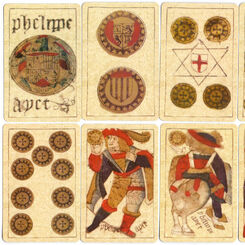
Phelippe Ayet, 1574
49 assorted cards were found hidden in the lintel of a doorway, in an old building in Toledo, during...
Most Popular
Our top articles from the past 60 days






















